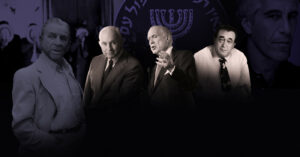Richard Chamberlain, the quintessential television heartthrob known for iconic roles in the 1960s and 1980s, died today just shy of his 91st birthday. Renowned for his performance as Dr. Kildare, Chamberlain garnered immense popularity among female viewers, which translated into persistent work in various TV movies. His career witnessed a notable revival during the mini-series boom of the '80s, particularly with memorable roles in "Shogun" and "The Thorn Birds." Despite struggling with his sexuality in a homophobic culture, Chamberlain didn't publicly come out until his 70s. Born on March 31, 1934, in Beverly Hills, Chamberlain's journey from a shy boy to an international star includes significant theater achievements and a vibrant television presence. His legacy as a captivating performer remains, and he will be fondly remembered as the king of the TV mini-series.
Richard Chamberlain: The Iconic Heartthrob of TV Mini-Series Era

Richard Chamberlain: The Iconic Heartthrob of TV Mini-Series Era
Richard Chamberlain, the beloved star of classic TV series like "Dr. Kildare" and "The Thorn Birds," has passed away at 90, leaving behind a legacy as a leading man in the television landscape.
Chamberlain began his journey with an acting passion ignited during college, further pursued after serving in the U.S. Army. He became a breakout star with "Dr. Kildare" in the 1960s, captivating audiences and earning a Golden Globe. His transition to mini-series such as "Shogun" solidified his status, culminating in major roles that showcased his talent beyond romantic leading man tropes. Despite his struggles with typecasting and a later career filled with less memorable performances, Chamberlain's influence on television and the portrayal of complex characters remains undeniable. He opens up about his past struggles with identity and career, eventually embracing his true self publicly in the late stages of life. Chamberlain's star power and ability to capture the audience's attention assure that he will remain a significant figure in television history.





















